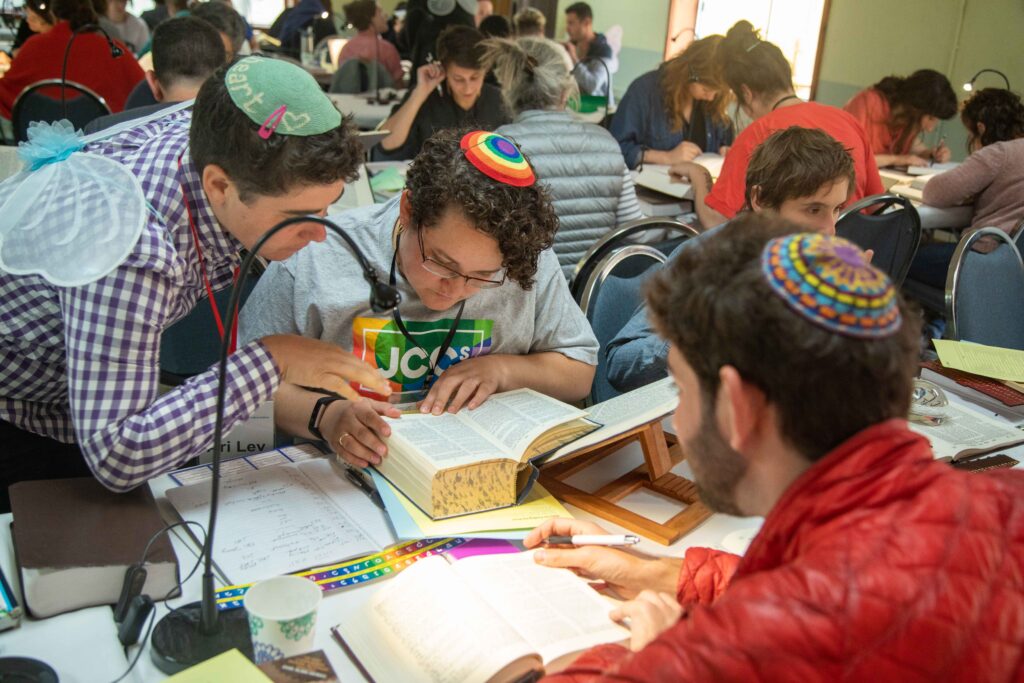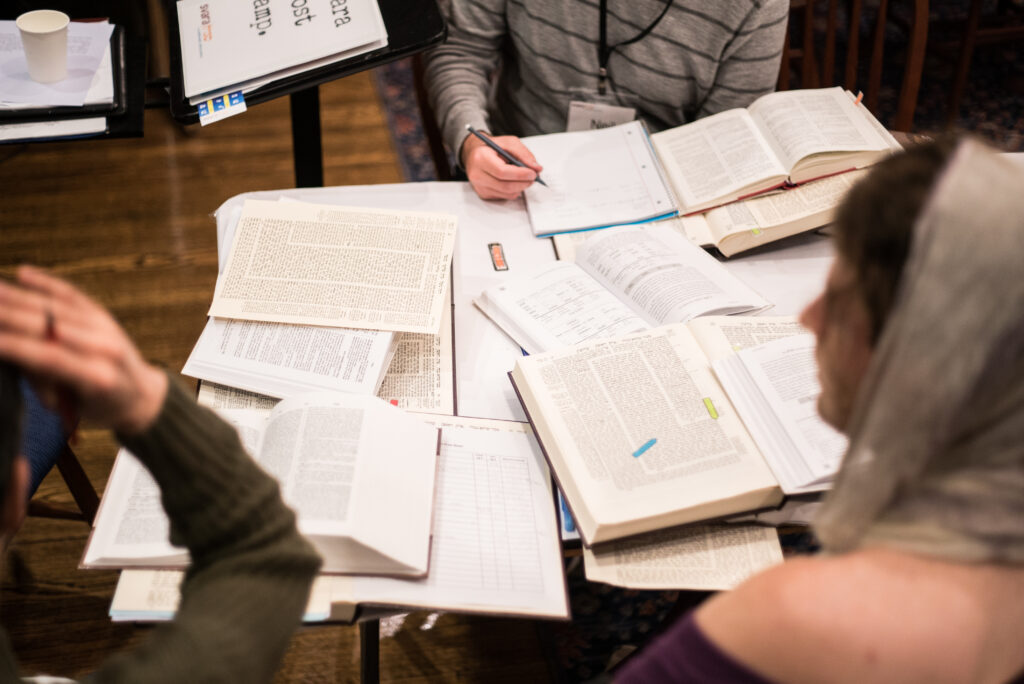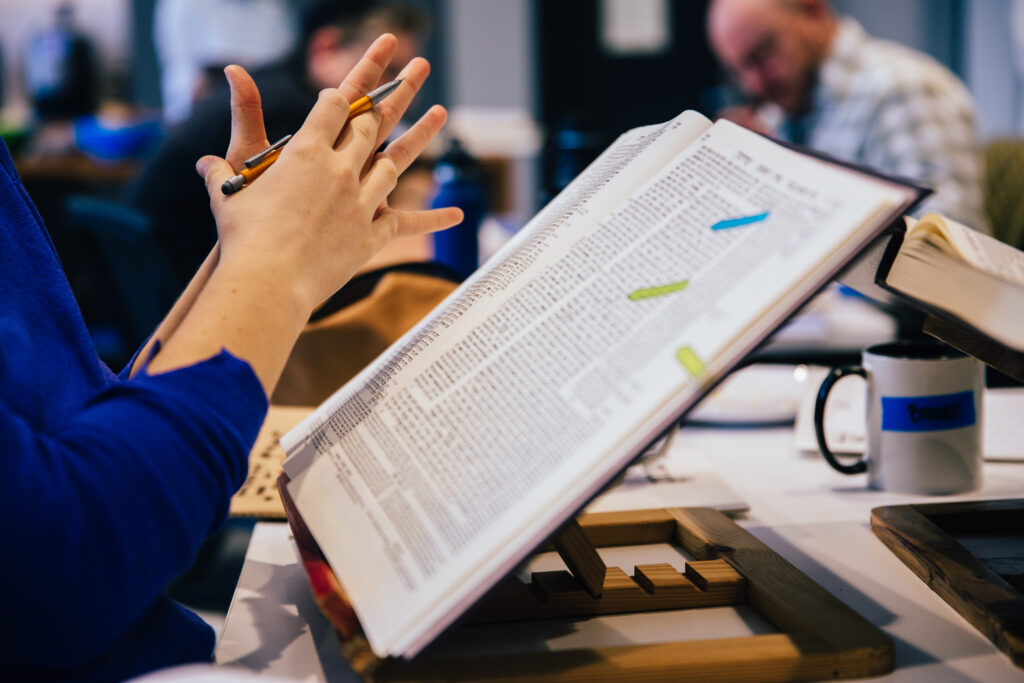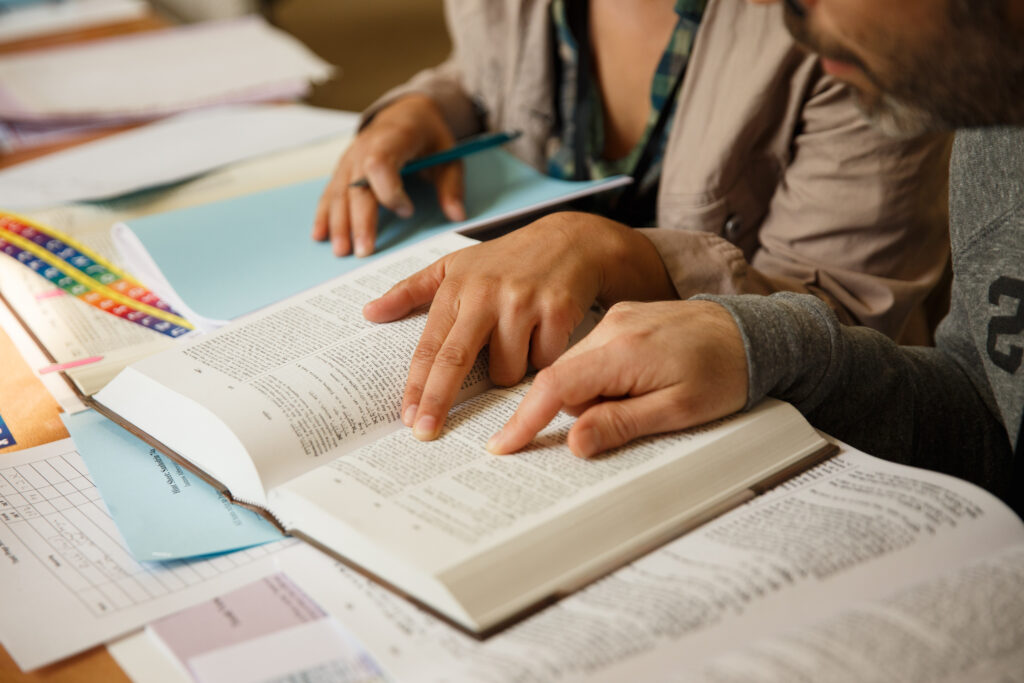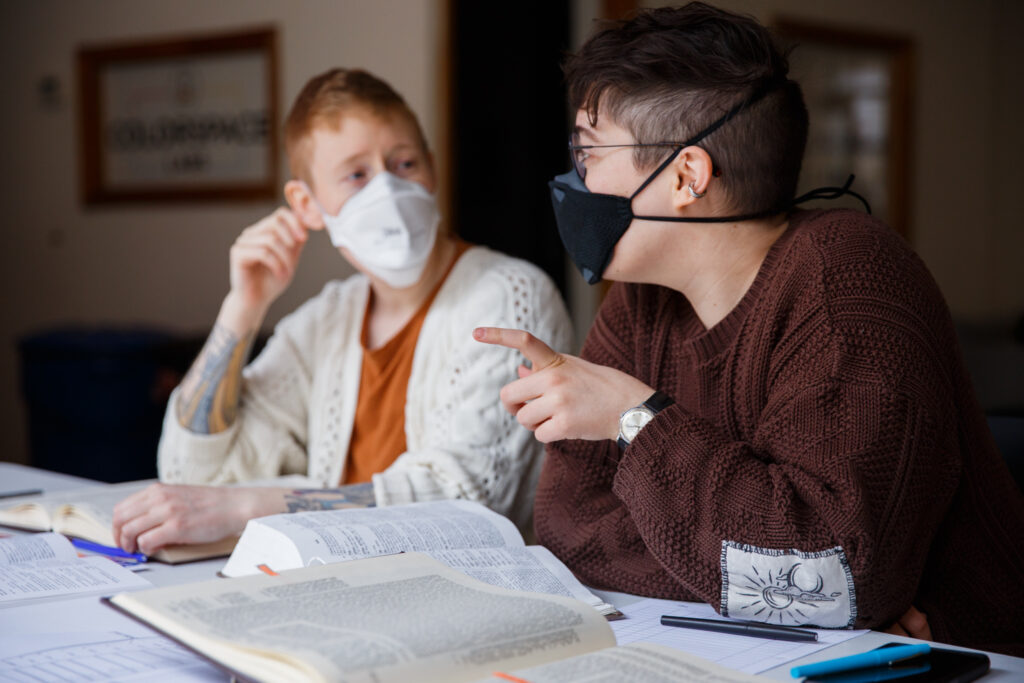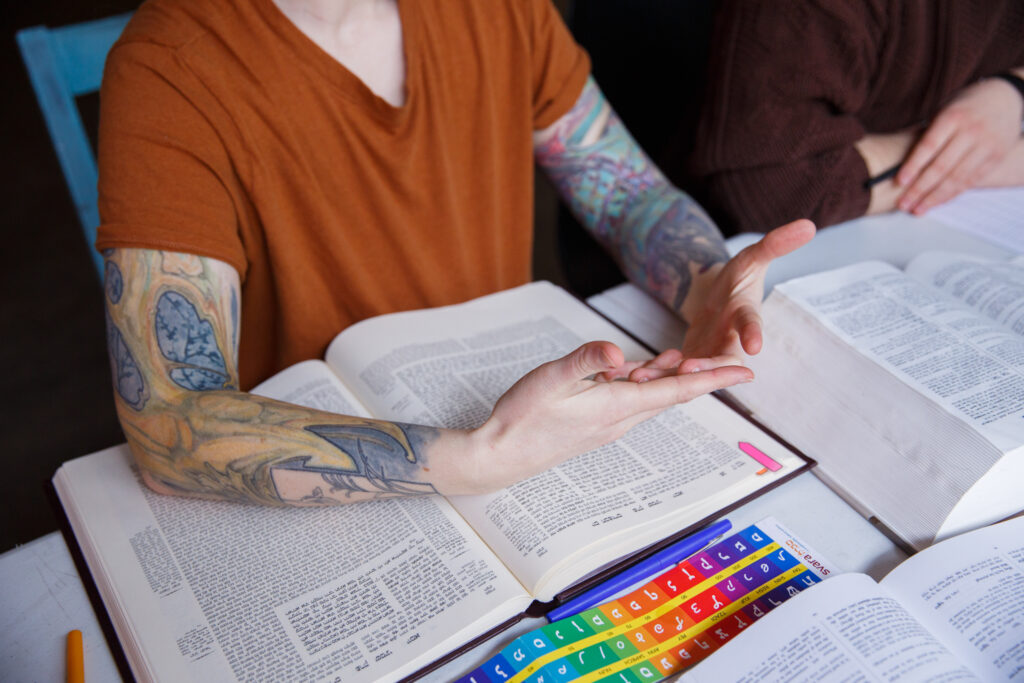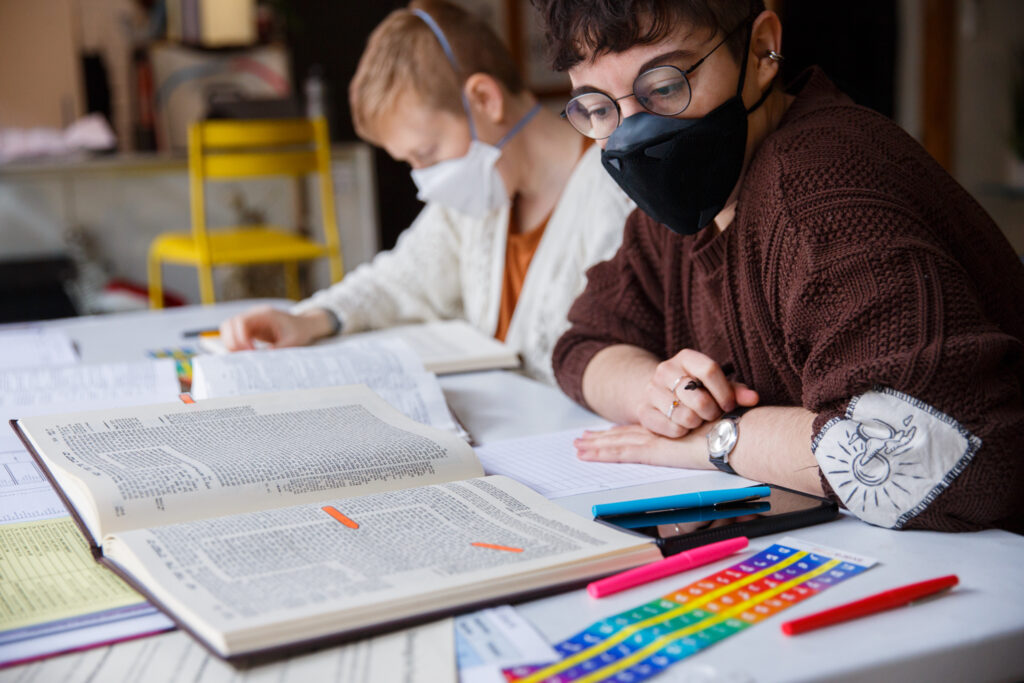In her beautiful song, Enough Room, my teacher, Rabba Dorothy Richman invites us to imagine and bring into being the truth that there’s enough room, enough space, enough joy, for all of us here. We find ourselves too often in the narrow place, not knowing if we’ll be answered from a wide expanse or, honestly, answered at all. As so many of my teachers have taught in one form or another these past months and weeks, in this world, there are no guarantees. Things can—and do—change on a dime. This truth is hard and so we earnestly—sometimes even desperately—grasp at whatever we can to feel some semblance of control, some hint of certainty. I truly believe we’re not wired to live in liminality forever. We yearn for the known and to be known.
These past six months, but truly for the past several years, I have found myself thinking a great deal about how our stories—our grand stories, the stories we tell ourselves, and the stories we’re told about ourselves—shape our ability and capacity to believe in our bones that there is enough room, enough blessing, for me, for you, for all of us here.
Passover is our foundational experience of story. The Haggadah is a causative experience. Our telling and retelling are intended to be multi-sensory and multi-faceted, a product of its particular time and place and the many ways it continues to be expanded and iterated upon.
Though Pesach is unabashedly my favorite holiday—just ask anyone who has ever heard me talk about Pesach—I have long since felt that the magid (the retelling in the Haggadah) can be deeply inaccessible because it is so steeped in rabbinic literature and the particularities thereof. Fear not! I love rabbinic literature. And yet I know it’s a particular art form, as it were, one that takes much time to understand, as is our practice at SVARA.
Why not read the first half of Exodus instead? Of course, timing is a factor there. It would take considerable time and attention to do so.
Perhaps there are yet other explanations for the centrality of the rabbinic literary form in the seder over the much more straightforward telling in the Torah.
One of my favorite chapters of Mishnah, arvei Pesachim (the tenth chapter of Pesachim), is a beautiful commentary and explanation of how the seder as we structurally know it today came into being. The Tannaim—rabbis in the Mishnaic period—created this ritual meal at a time when the ground beneath their feet—their grand story and sense of religious meaning—had rapidly changed. The destruction of the Temple was very close to them. Their lived reality was one of dispossession and trauma. What would Judaism be in its next stage? And how can the seder bridge the inevitable gap between the grand story as it was and the grand story that was to be?
The core of our telling is based on a few verses from the Book of Deuteronomy (26:5-9):
וְעָנִיתָ וְאָמַרְתָּ לִפְנֵי : ה׳ אֱלֹהֶיךָ אֲרַמִּי אֹבֵד אָבִי וַיֵּרֶד מִצְרַיְמָה וַיָּגָר שָׁם בִּמְתֵי מְעָט וַיְהִי־שָׁם לְגוֹי גָּדוֹל עָצוּם וָרָב׃
You shall then recite as follows before your G-d: “My father was a fugitive Aramean. He went down to Egypt with meager numbers and sojourned there; but there he became a great and very populous nation.
וַיָּרֵעוּ אֹתָנוּ הַמִּצְרִים וַיְעַנּוּנוּ וַיִּתְּנוּ עָלֵינוּ עֲבֹדָה קָשָׁה׃
The Egyptians dealt harshly with us and oppressed us; they imposed heavy labor upon us.
וַנִּצְעַק אֶל־יְהֹוָה אֱלֹהֵי אֲבֹתֵינוּ וַיִּשְׁמַע ה׳ אֶת־קֹלֵנוּ וַיַּרְא אֶת־עָנְיֵנוּ וְאֶת־עֲמָלֵנוּ וְאֶת־לַחֲצֵנוּ׃
We cried to ה׳, the G-d of our ancestors, and ה׳ heard our plea and saw our plight, our misery, and our oppression.
וַיּוֹצִאֵנוּ ה׳ מִמִּצְרַיִם בְּיָד חֲזָקָה וּבִזְרֹעַ נְטוּיָה וּבְמֹרָא גָּדֹל וּבְאֹתוֹת וּבְמֹפְתִים׃
ה׳ freed us from Egypt by a mighty hand, by an outstretched arm and awesome power, and by signs and portents,
וַיְבִאֵנוּ אֶל־הַמָּקוֹם הַזֶּה וַיִּתֶּן־לָנוּ אֶת־הָאָרֶץ הַזֹּאת אֶרֶץ זָבַת חָלָב וּדְבָשׁ׃
bringing us to this place and giving us this land, a land flowing with milk and honey.
The broader context of this passage is that when the Temple stood in Yerushalayim, on the holiday of Shavuot, folks would bring their first fruits to the Temple and would recite these lines upon making their offering with Kohanim (priests) present. If one did not know how to recite, the Kohen would assist. These words lived inside our ancestors as they waited in line to make their offerings. They were so commonly known that they formed the core of how we understood ourselves collectively and individually. We name and acknowledge our past wanderings, and our inability to form our core sense of being. We found ourselves in the narrow place, in a pattern of constriction. We couldn’t access the knowing that there is enough—or frankly any—room for us. Our time was not ours. We left that place through a power that was not our own—through a mighty hand and an outstretched arm—and came to a land flowing with abundance. Thus, our offerings represent the culmination and cultivation of that gratitude.
I am moved by the choice our rabbinic ancestors made to place this well-known (in their time) passage as the foundational one. I cannot even pretend to know if our ancestors sensed a transformative shift was occurring as they codified the Haggadah. Perhaps they yearned to retain the old while wondering what was to come. I cannot know, though I’ve longed to know—what was their fear? What was their insight? The wisdom that carried them forward, that allows all of us to be here in this extraordinary and immensely difficult time? Perhaps they are demonstrating that there is enough space for their story and ours. There’s enough room to carry forward our story and sense of self without turning away or denying the bitter realities around us, the pain, the fear, the trauma, and the tragedy. Each of us individually cannot hold it all alone but I pray we can hold it all together.
I pray we allow ourselves to make enough space for all of us here to honor the truths we know in our bones, to allow those truths—hard truths, difficult truths—to form and inform. May our stories strengthen and challenge. May they inspire and create curiosity. May we move from the narrows that so many of us have been in towards a wider expanse. May we recognize the Pharaoh within who tells us to harden our hearts. May we instead soften, allowing our hearts to be wide enough to hold as much as we can.

